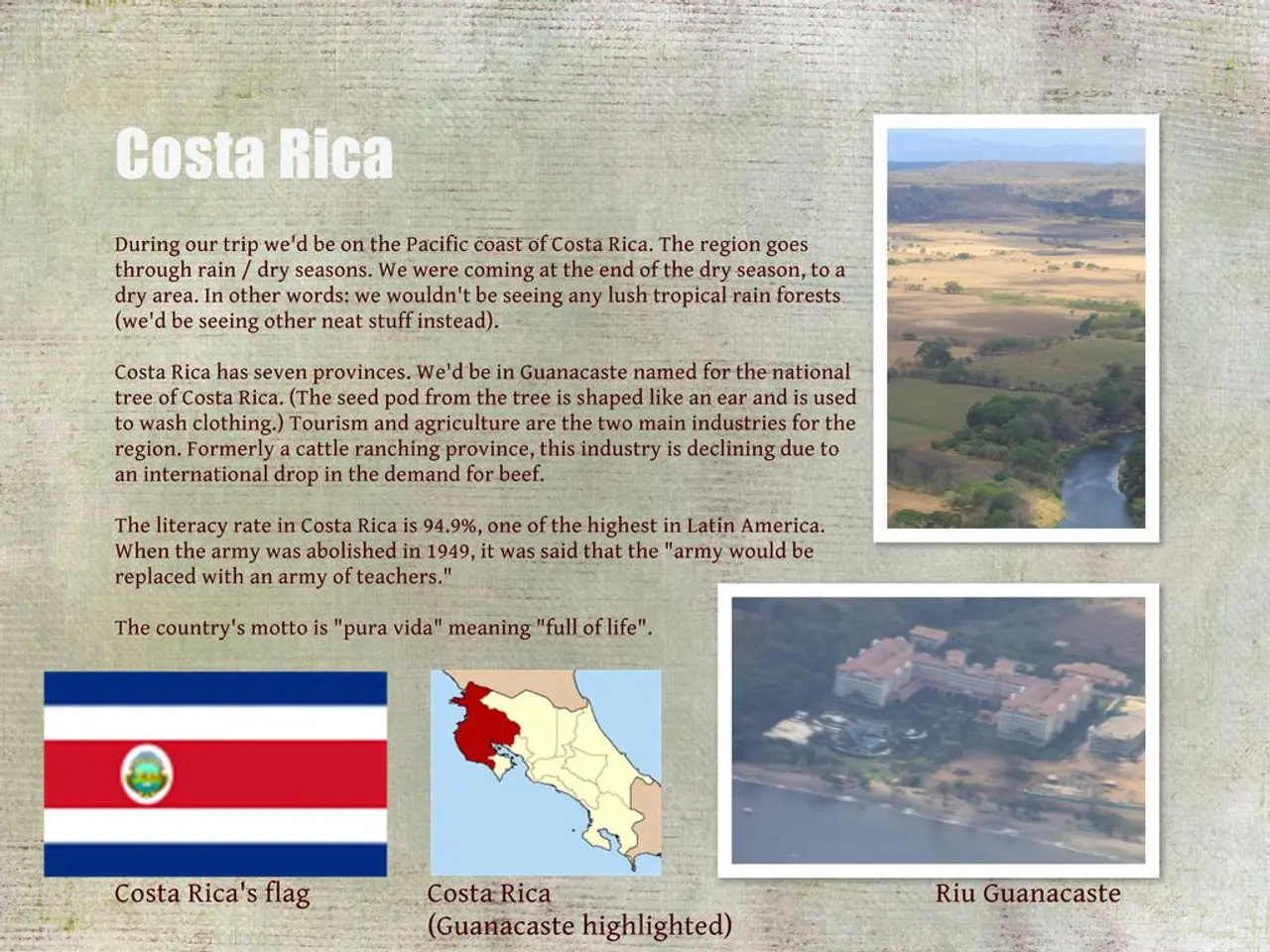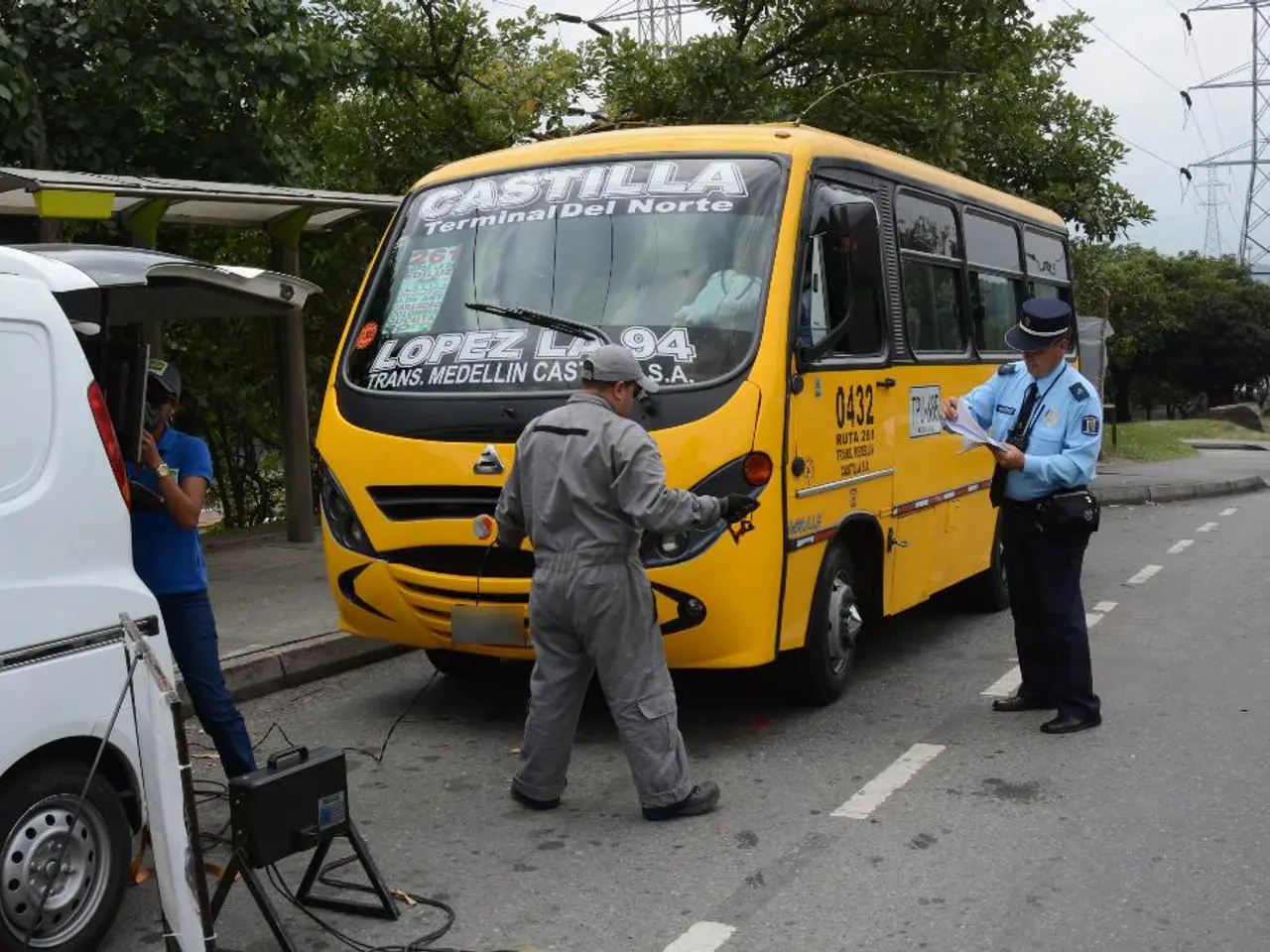United States to Allocate $7.85 Million to Assist Costa Rica in Removing Immigrants: Media Statement
The US State Department has announced plans to provide Costa Rica with $7.85 million to assist in the deportation of migrants, according to recent reports from August 2025 [1][3]. This funding aims to support Costa Rica in managing migrant deportations, but it has sparked concerns over migrants' access to asylum and their safety during the process.
This plan appears to be part of a continued strategy to outsource migrant management to Central American countries, similar to other arrangements established in recent years. Unlike the Biden administration's programs that focused on humanitarian support and resettlement, this new funding explicitly targets deportation facilitation [4].
During the Biden administration, programs emphasized support and resettlement for vulnerable populations, such as Afghans and asylum seekers. However, these initiatives have faced challenges like processing delays and policy reversals compared to the current focus on deportation enforcement.
Critics argue that these secretive deportation agreements, which may extend beyond Costa Rica to other countries and detention facilities, could undermine immigrants' human rights protections and due process [2].
Here's a comparison of the primary aspects of the $7.85 million Costa Rica deportation plan, Biden-era programs, and other similar arrangements:
| Aspect | $7.85M Costa Rica Deportation Plan (2025) | Biden-era Programs | Other Similar Arrangements | |------------------------------|----------------------------------------------------|------------------------------------------------|----------------------------------------------| | Primary Objective | Support Costa Rica’s migrant deportations | Humanitarian resettlement and asylum access | Enforcement-driven deportation deals | | Funding Amount | $7.85 million | Various, focused on refugee admissions, support | Varied, often undisclosed | | Focus | Deportation enforcement | Protection, resettlement, asylum processing | Secret agreements, expanded detention centers| | Human Rights Concerns | Risk to asylum access and migrant safety | Recognized but still problematic delays/denials| Increased concern over systemic violations |
The Costa Rica arrangement is modeled "in part" on a deal signed in 2024 between the US and Panama. Some Venezuelan migrants have been transiting through Costa Rica on a southward journey, after giving up on entering the US amid Trump's crackdown on unlawful migration.
However, the details about specific operational mechanisms or diplomatic arrangements underlying this funding remain undisclosed in the available sources [1][3][4]. Some countries accepting deportees have weak institutions or poor human rights records, raising safety concerns.
Sources:
- "U.S. to spend $7.85 million to help Costa Rica deport migrants without legal status." Reuters, 2025-08-01. https://www.reuters.com/world/us/us-to-spend-785-million-to-help-costa-rica-deport-migrants-without-legal-status-2025-08-01/
- "Secret U.S. deportation deals with Central American countries raise human rights concerns." Amnesty International, 2025-07-15. https://www.amnesty.org/en/latest/news/2025/07/secret-us-deportation-deals-with-central-american-countries-raise-human-rights-concerns/
- "U.S. to assist Costa Rica with migrant deportations, training." Associated Press, 2025-08-01. https://apnews.com/article/immigration-costa-rica-united-states-panama-el-salvador-chile-apf-4d54831839e8a0a99b15a63857570d1b
- "Biden administration struggles to meet refugee resettlement goals." PBS NewsHour, 2025-08-03. https://www.pbs.org/newshour/politics/biden-administration-struggles-to-meet-refugee-resettlement-goals
The Costa Rica arrangement, following a similar deal with Panama in 2024, seemingly aligns with a broader strategy of outsourcing migrant management to Central American countries, shifting focus from humanitarian support and asylum access to deportation facilitation. This development in politics opens avenues for discussions in the realm of general-news and crime-and-justice, sparking concerns among rights groups over immigrants' human rights protections and due process.








